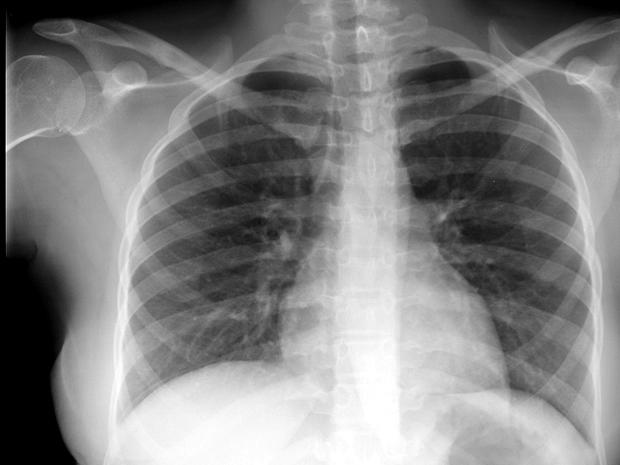Lung transplant from smoker better than staying on waiting list
(CBS/AP) A lung transplant is given to someone who is likely to die from a lung diseases - such as cystic fibrosis or COPD - within one to two years. A new study finds that many of these patients are better off taking a donated lung from a former smoker than not getting a new lung at all.
Organ transplants tied to cancer: How big's the risk?
Opera singer gets second double lung transplant
They probably won't live as long as those who get a lung transplant from a nonsmoker, the study shows, but British researchers say patients will survive longer if they are willing to accept lungs from anyone, including smokers. In the U.K. that's a key issue, because about 40 percent of donated lungs come from people who have previously smoked.
Yet in recent years, several cases of British patients dying after getting lungs from smokers have sparked calls for a policy overhaul. Doctors behind the new study, published in the May 29 issue of The Lancet, said changing the U.K. transplant system would be wrong and lead to a spike in the number of people dying while waiting for donated lungs.
"That could deny patients the opportunity to get help," said Dr. James Neuberger, associate medical director of the Queen Elizabeth Hospital in Birmingham and one of the study's authors.
Neuberger and colleagues analyzed information from the U.K. Transplant Registry and the Office of National Statistics on the survival rates of 2,181 adult British patients waiting for lung transplants between 1999 and 2010. About 2 in 5 of those transplants came from smokers, the study showed.
The researchers found that patients who got lungs from smokers were about 46 percent more likely to die within three years after getting the replacement lungs compared to patients who got the organs from non-smokers. But they had a 21 percent lower chance of dying versus people who were still on the waiting list.
"Although lungs from such donors are associated with worse outcomes, the individual probability of survival is greater if they are accepted than if they are declined and the patient chooses to wait for a potential transplant from a donor with a negative smoking history," the authors wrote. "This situation should be fully explained to and discussed with patients who are accepted for lung transplantation".
In the U.S., doctors also use lungs from smokers, although Dr. Norman Edelman, the chief medical officer for the American Lung Association, didn't have any data on how often that happens. The U.S. and the U.K. have similar overall smoking rates of about 20 percent.
Some experts said it wasn't realistic to expect organ donor systems to refuse lungs from smokers because the demand is such that nearly every usable lung is transplanted. The key issues in lung transplants involve the size of the lung and the donor's blood type, which must match the recipients.
"There is rarely an `ideal' organ available," Edelman said. He said most organs have defects based on factors like underlying disease or the age and circumstances of the donor's death.
"A smoker donor is really just one more factor to consider," he said in an email.
In the U.K., advocates have called for patients to be given more information about organ donors before accepting a transplant. In 2010, the family of a 28-year-old woman with cystic fibrosis lodged a complaint when she died a year after getting lungs from someone who had smoked for three decades. They said she had not been told and would have been horrified to get a smoker's lungs.
Neuberger said patients had the right to refuse lungs from smokers as long as they understood the implications.
"I'd rather take the lungs from a smoker than get no lungs at all," he said.
About 1,800 lung transplants are done in the U.S. each year, according to the National Heart Lung and Blood Institute.
The Mayo Clinic has more on lung transplants.
